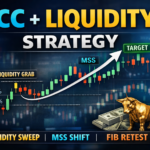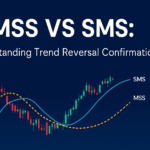In today’s digital age, having a robust online marketing strategy is essential for businesses to thrive. With the right approach, you can maximize your impact and reach your target audience effectively. Here are seven proven online marketing strategy that can help you achieve your goals.
>> Here’s the Proven Way to Make $100-$200 Daily with 0 Investment – Watch This FREE Video and Start Now >>

1. Create High-Quality Content
Content is king in the online world. Whether it’s blog posts, videos, infographics, or podcasts, creating valuable and engaging content should be at the forefront of your marketing strategy. By providing informative and relevant content, you can attract and retain your audience’s attention, establish authority in your niche, and drive organic traffic to your website.
2. Search Engine Optimization (SEO)
SEO is crucial for improving your website’s visibility on search engine results pages (SERPs). Optimizing your website with relevant keywords, meta tags, and high-quality backlinks can help you rank higher in search results, driving more organic traffic to your site. Additionally, regularly updating your content and ensuring mobile-friendliness can further boost your SEO efforts.
3. Utilize Social Media
With billions of active users, social media platforms offer a vast opportunity to connect with your target audience. Identify which platforms your audience frequents the most and create a strong presence there. Share your content, engage with your followers, run targeted ads, and leverage features like stories and live videos to increase brand visibility and drive traffic to your website.
4. Email Marketing
Email marketing remains one of the most effective ways to nurture leads and drive conversions. Build an email list of subscribers who are genuinely interested in your products or services and send them valuable content, promotions, and updates. Personalize your emails based on subscriber preferences and behavior to increase engagement and drive sales.
5. Pay-Per-Click (PPC) Advertising
PPC advertising allows you to bid on keywords relevant to your business and place ads in search engine results or on other websites. With PPC, you only pay when someone clicks on your ad, making it a cost-effective way to drive targeted traffic to your site. To maximize your ROI, continuously monitor and optimize your campaigns for better performance.
6. Influencer Marketing
Partnering with influencers in your industry can help you reach a wider audience and build credibility for your brand. Identify influencers whose values align with your brand and collaborate with them to create authentic content that resonates with their followers. Their endorsement can help you gain trust and credibility among your target market.
7. Video Marketing
Video content continues to dominate the online space, with platforms like YouTube and TikTok seeing exponential growth. Create engaging and informative videos that showcase your products, share customer testimonials, or provide valuable insights into your industry. Video content is highly shareable and can help you increase brand awareness and drive conversions.
8. Analytics and Measurement
To ensure the effectiveness of your online marketing efforts, it’s essential to track and analyze your results regularly. Use tools like Google Analytics to monitor website traffic, user behavior, and conversion rates. Identify which strategies are delivering the best results and allocate your resources accordingly to maximize your ROI.
>> Here’s the Proven Way to Make $100-$200 Daily with 0 Investment – Watch This FREE Video and Start Now >>
Create High-Quality Content
In the digital world, content is the cornerstone of any successful online marketing strategy. High-quality content not only attracts and retains your audience’s attention but also establishes your authority in your industry. Here are seven key points to consider when creating content that drives results.
- Know Your Audience: Understand your target audience’s needs, preferences, and pain points to create content that resonates with them.
- Provide Value: Offer valuable insights, tips, and solutions to your audience’s problems to keep them engaged and coming back for more.
- Be Authentic: Show your brand’s personality and values through your content to build trust and credibility with your audience.
- Optimize for SEO: Incorporate relevant keywords and optimize your content for search engines to improve visibility and attract organic traffic.
- Use Visuals: Enhance your content with images, videos, and infographics to make it more engaging and shareable.
- Tell Stories: Connect with your audience on an emotional level by sharing stories that resonate with them and relate to your brand.
- Be Consistent: Maintain a regular publishing schedule to keep your audience engaged and establish your brand as a reliable source of valuable content.
By following these seven principles, you can create high-quality content that not only attracts but also retains your audience’s attention, ultimately driving results for your business.
Search Engine Optimization (SEO)
Search Engine Optimization (SEO) is the backbone of any successful online presence. It involves optimizing your website to rank higher in search engine results pages (SERPs) and attract more organic traffic. Here are eight key points to consider when implementing an effective SEO strategy.
- Keyword Research: Identify relevant keywords that your target audience is searching for to optimize your content and improve visibility.
- On-Page Optimization: Optimize meta tags, headings, and content structure to make it easier for search engines to crawl and understand your website.
- Quality Content: Create high-quality, valuable content that provides solutions to your audience’s problems and encourages engagement and sharing.
- Mobile Optimization: Ensure your website is mobile-friendly to cater to the increasing number of users accessing the internet via mobile devices.
- Page Speed: Improve loading times to enhance user experience and satisfy search engine algorithms, which favor fast-loading websites.
- Link Building: Build quality backlinks from reputable websites to increase your site’s authority and improve search engine rankings.
- Local SEO: Optimize your website for local searches by claiming your Google My Business listing and ensuring consistent NAP (Name, Address, Phone Number) information across the web.
- Regular Monitoring and Adjustments: Continuously monitor your SEO performance, track keyword rankings, and make adjustments to your strategy as needed to stay competitive.
By implementing these eight SEO strategies, you can improve your website’s visibility, attract more organic traffic, and ultimately grow your online presence and business.
Utilize Social Media
Social media has become an indispensable tool for businesses to connect with their audience and drive engagement. Here are seven effective ways to utilize social media for your marketing efforts.
- Know Your Platforms: Understand which social media platforms your target audience uses most and focus your efforts there.
- Create Compelling Content: Share engaging content such as videos, images, and infographics that resonate with your audience and encourage interaction.
- Consistent Branding: Maintain a consistent brand voice and aesthetic across all your social media channels to build brand recognition.
- Engage with Your Audience: Respond to comments, messages, and mentions promptly to foster relationships and show that you value your audience’s input.
- Use Hashtags: Utilize relevant hashtags to increase the visibility of your posts and attract a wider audience.
- Run Contests and Giveaways: Encourage engagement and reach new followers by running contests and giveaways that incentivize participation.
- Analytics and Optimization: Monitor your social media metrics to track performance and optimize your strategy for better results.
By implementing these seven strategies, you can effectively utilize social media to connect with your audience, increase brand awareness, and drive meaningful engagement.
Email Marketing
Email marketing remains a powerful tool for businesses to nurture leads and drive conversions. Here are six key strategies to maximize the impact of your email marketing campaigns.
- Build a Quality Email List: Collect email addresses from interested subscribers through sign-up forms and lead magnets.
- Segment Your Audience: Divide your email list into segments based on demographics, behavior, or preferences for targeted messaging.
- Personalize Your Content: Address subscribers by name and tailor your emails to their interests and past interactions with your brand.
- Create Compelling Subject Lines: Grab subscribers’ attention with engaging subject lines that entice them to open your emails.
- Provide Value: Offer valuable content, promotions, and exclusive offers to keep subscribers engaged and interested.
- Optimize for Mobile: Ensure your emails are mobile-responsive for seamless viewing on smartphones and tablets.
With these six strategies, you can enhance your email marketing efforts, increase open and click-through rates, and drive conversions for your business.
>> Here’s the Proven Way to Make $100-$200 Daily with 0 Investment – Watch This FREE Video and Start Now >>
Pay-Per-Click (PPC) Advertising
Pay-Per-Click (PPC) advertising is a highly effective way to drive targeted traffic to your website and increase conversions. Here are seven key points to consider when implementing a successful PPC campaign.
- Keyword Research: Identify relevant keywords that your target audience is searching for to optimize your PPC ads.
- Compelling Ad Copy: Write engaging ad copy that highlights your unique selling points and encourages clicks.
- Targeted Landing Pages: Direct users to landing pages that are specific to the ad they clicked on, providing a seamless experience and increasing conversions.
- Ad Extensions: Utilize ad extensions such as sitelinks, callouts, and reviews to enhance your ads and provide additional information to users.
- Geo-Targeting: Target your ads to specific geographic locations to reach potential customers in your target market.
- A/B Testing: Experiment with different ad elements, such as headlines, images, and calls to action, to optimize your campaigns for better performance.
- Monitor and Adjust: Continuously monitor your PPC campaigns, analyze metrics, and make adjustments to improve ROI and maximize results.
By following these seven strategies, you can create successful PPC campaigns that drive targeted traffic, increase brand visibility, and generate valuable leads and conversions for your business.
Influencer Marketing
Influencer marketing has become a powerful way for brands to reach their target audience through trusted voices. Here are six key strategies to effectively leverage influencer marketing for your business.
- Identify the Right Influencers: Choose influencers whose values align with your brand and whose audience matches your target demographic.
- Build Authentic Relationships: Cultivate genuine relationships with influencers to ensure authentic promotion of your products or services.
- Collaborate on Creative Content: Work with influencers to create engaging content that resonates with their audience while showcasing your brand.
- Set Clear Goals and Expectations: Define specific goals and metrics for your influencer campaigns to measure success effectively.
- Track and Measure Results: Use tracking tools to monitor the performance of your influencer campaigns and adjust strategies as needed.
- Engage with the Audience: Encourage influencers to interact with their audience and respond to comments and inquiries about your brand.
By implementing these six strategies, you can harness the power of influencer marketing to increase brand awareness, drive engagement, and ultimately boost sales for your business.
Video Marketing
Video marketing has emerged as a dominant force in the digital landscape, offering businesses a dynamic way to connect with their audience. Here are seven key strategies to effectively leverage video marketing:
- Define Your Goals: Determine what you want to achieve with your videos, whether it’s brand awareness, engagement, or conversions.
- Know Your Audience: Tailor your video content to resonate with the preferences and interests of your target audience.
- Create Compelling Content: Produce high-quality, engaging videos that capture attention and tell your brand story effectively.
- Optimize for Platforms: Customize your videos for each platform’s specifications and audience preferences.
- Include Calls to Action: Encourage viewers to take action, whether it’s visiting your website, subscribing, or making a purchase.
- Promote Across Channels: Share your videos on social media, email newsletters, and other channels to maximize reach and engagement.
- Measure and Iterate: Track metrics like views, engagement, and conversions to refine your video strategy over time.
By implementing these strategies, you can harness the power of video marketing to drive brand awareness, engagement, and ultimately, conversions for your business.
Analytics and Measurement
Analytics and measurement are essential components of any successful online marketing strategy. By tracking key metrics, you can gain valuable insights into the effectiveness of your campaigns and make data-driven decisions. Here are seven key points to consider when it comes to analytics and measurement:
- Set Clear Objectives: Define specific goals for your marketing campaigns, whether it’s increasing website traffic, generating leads, or boosting sales.
- Choose Relevant Metrics: Focus on metrics that align with your goals, such as conversion rate, click-through rate, and return on investment (ROI).
- Use Analytics Tools: Utilize tools like Google Analytics, social media insights, and email marketing platforms to track and analyze your data.
- Regular Monitoring: Keep a close eye on your metrics regularly to identify trends, spot opportunities, and address any issues promptly.
- Segmentation: Break down your data into segments to gain deeper insights into different audience segments and their behavior.
- A/B Testing: Experiment with different variables in your campaigns to see what resonates best with your audience and drives the highest results.
- Continuous Improvement: Use your analytics data to inform future strategies and optimize your marketing efforts for better performance.
By leveraging analytics and measurement effectively, you can optimize your online marketing campaigns, improve ROI, and drive sustainable growth for your business.
Conclusion
In conclusion, by implementing these seven effective online marketing strategies and utilizing analytics to measure your results, you can maximize your impact, increase brand visibility, and drive meaningful engagement with your target audience. Stay updated with the latest trends and continuously refine your approach to stay ahead in today’s competitive digital landscape.
>> Here’s the Proven Way to Make $100-$200 Daily with 0 Investment – Watch This FREE Video and Start Now >>
Thank you for taking the time to read my article “Maximize Your Impact: 7 Effective Online Marketing Strategies Revealed”, hope it helps!














Your point of view caught my eye and was very interesting. Thanks. I have a question for you.